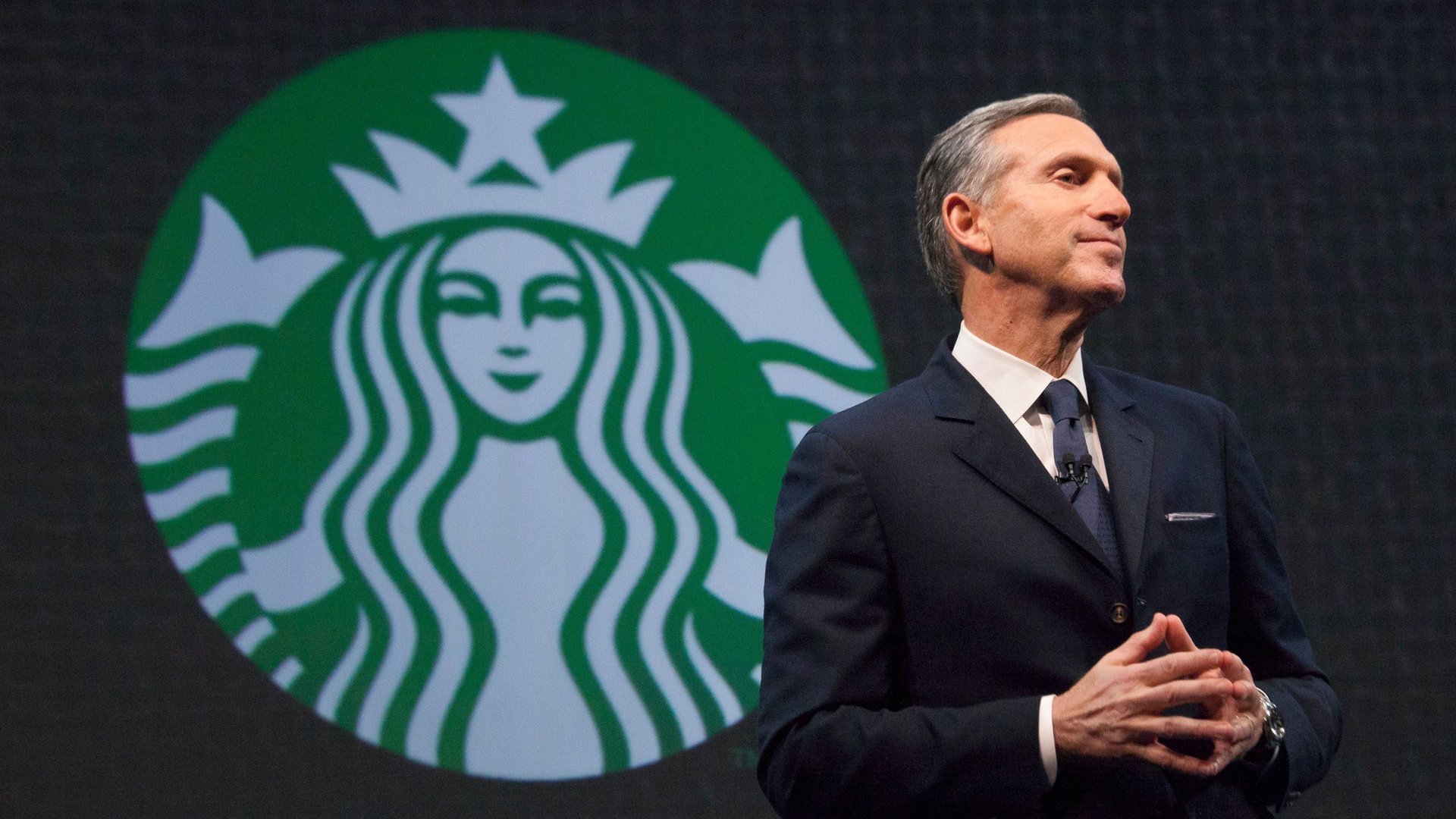Howard Schultz is retiring from Starbucks
Howard Schultz, the entrepreneur and coffee enthusiast behind Starbucks’ explosive growth, announced his retirement from the company today (June 4).


Howard Schultz, the entrepreneur and coffee enthusiast behind Starbucks’ explosive growth, announced his retirement from the company today (June 4).
Schultz, who has served two separate stints as Starbucks’ CEO, was named executive chairman in 2017. He grew the chain from a small Seattle-based chain of 11 stores in 1981 to an international behemoth with 28,000 stores in 77 countries today. Depending on whom you ask, he either brought high-quality Italian style coffee culture to the masses, or presided over the ruin of countless local coffee shops with a bland, homogenized product.
Significantly, he built the company by recognizing the importance of Starbucks’ baristas to the product and customer experience, and was an early adopter of what MIT lecturer Zeynep Ton calls the Good Jobs Strategy. That meant offering higher wages and better benefits than competitors, which according to Ton’s theory results in longer-tenured employees, better customer service, and increased sales. The company also invested in ethically sourced coffee beans, and as importantly, telling the world about it. Corporate responsibility became as much as part of the Starbucks brand as green aprons.
Under Schultz, Starbucks wasn’t shy about wading into hot-button issues, most notably his well-intended but clumsily executed 2015 initiative to promote racial dialogue by having baristas write “Race Together” on coffee cups. More recently, Starbucks was at the center of another racial controversy when two black men were arrested for trespassing in a Philadelphia store. Schultz and CEO Kevin Johnson acted aggressively to contain the damage, flying to Philadelphia to apologize, and closing 8,000 company-owned stores for the afternoon of May 29 for diversity training.
Whether or not the bias training sticks—and there’s reason to believe it won’t—it was a good faith effort that summed up Schultz’s unique brand of progressive-politics-as-marketing device. The company, assailed for its Philadelphia employee’s action, emerged from the episode viewed once again as a corporate leader. That’s not a bad valedictory note for Schultz.